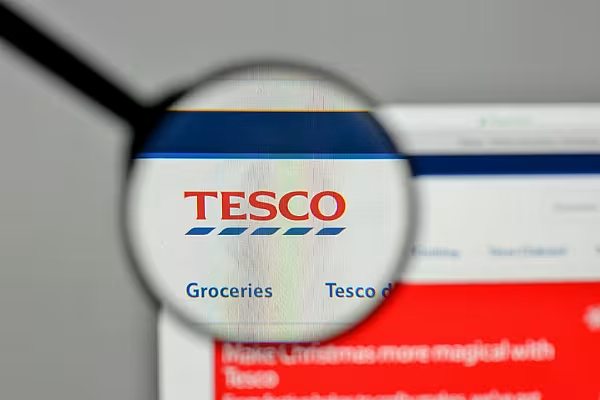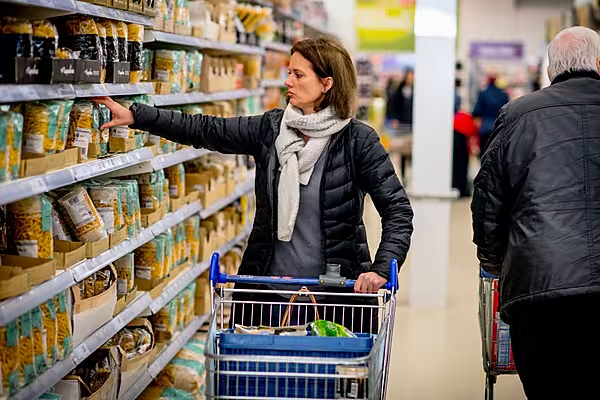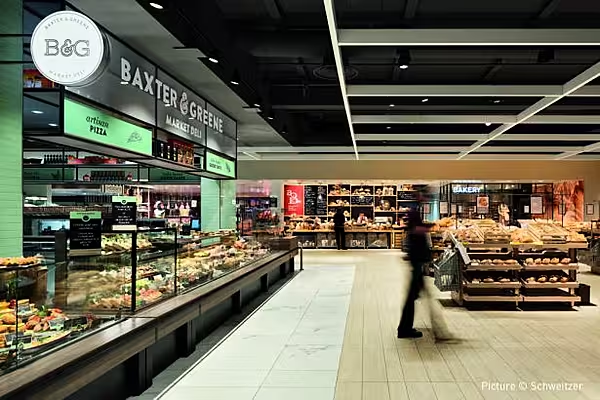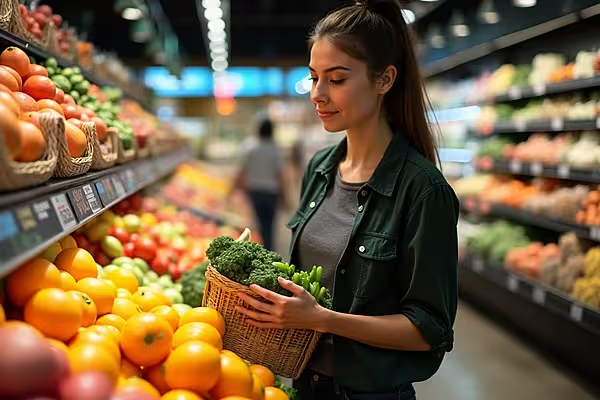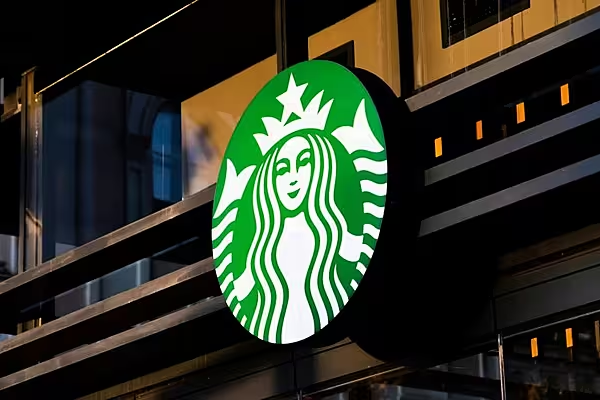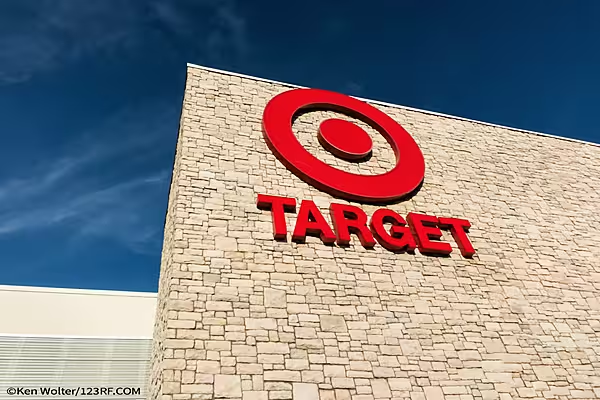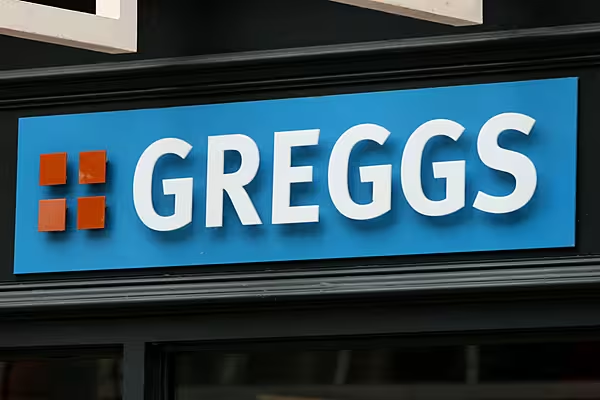Tesco has reported what it describes as a 'market-leading Christmas performance', with like-for-like sales in its UK & ROI business up 6.1% in the 19 weeks over the third quarter and Christmas.
Commenting on its performance, Tesco chief executive Ken Murphy said, “Our focus on looking after our customers, including delivering record availability, robust safety measures and great value has enabled us to maintain strong momentum through the Christmas period, outperforming the market every week."
Here's how leading retail analysts viewed its performance:
Richard Lim, Retail Economics
“A lockdown Christmas for many encouraged households to trade up to premium items and treat themselves after a challenging year. Overall sales rose impressively but the online channel continued to grow at an eye-watering pace.
"The impact of the pandemic has caused a permanent change in shopping behaviour across the industry and food has experienced one of the biggest shocks. There's been a step-change in the proportion of groceries being sold online and it's one of the areas where habits seem to have stuck. The retailer has leveraged this opportunity and is well-positioned to capitalise their position in the market moving forward."
James Anstead, Barclays
Tesco has published a trading statement covering the 19 weeks to 9 January (including a 13W/6W split). The core UK business grew LFL sales by +7.2% over the period as a whole, including a particularly strong +8.1% LFL growth over the final six weeks.
Due to timing and definitional differences, we cannot fully compare the +8.1% outcome with peers, but it seems safe to say Tesco's LFL growth will have been at least as high as that delivered by any of the 'big four'.
If there is an apparent weakness in the statement, it would be the -8.3% LFL decline at Booker in the final six weeks, but this is not altogether surprising given the weakness of the catering market in December. Tesco has reiterated its previous profit guidance for FY20/21, despite its estimate of pandemic-related costs rising from £725m to £810m.
Russ Mould, AJ Bell
“It’s a hard slog running a supermarket when so many more people have been forced to cook from home instead of going out for meals or picking them up on the go. Like many of its peers, Tesco has done an incredible job keeping its shelves stocked and doing everything it can to boost its capacity to fulfil more online orders.
“The results are laid bare in its latest update which shows decent like-for-like sales growth over the Christmas period in nearly all parts of the business. COVID-related costs have gone up, acting as an important reminder that the extra demand for food and drink isn’t all pure profit.
“What’s beneficial to the business is the fact we’re seeing a live stress test play out. If anyone ever questioned whether Tesco could cope under pressure from a significant change in circumstances, the answer is firmly ‘yes’.
“Against this resilience, one cannot ignore the problems within Tesco’s wholesale business, Booker. Flat like-for-like sales in the third quarter, weak Christmas trading and a like-for-like sales decline over the past 19 weeks goes to show that some factors are out of Tesco’s hands. Booker is likely to struggle for as long as lockdown restrictions remain in place. And as for Tesco Bank, the less said about it, the better.”
Thomas Brereton, GlobalData
“Much as expected Tesco has delivered a set of strong results for its Q3 and Christmas trading period, with lockdown conditions in the UK supporting strong growth across food retail markets. While total group sales fell to £19.9 billion from £21.0 billion across the same period in 2019/20, this excludes the disposal of Tesco’s Asia business, and retail operations remained strong across the core UK and ROI retail arms.
"While Tesco’s strategic investment in non-retail UK food operations (i.e. Booker) has left it more exposed to the impact of COVID-19 than the likes of Sainsbury’s and Asda Tesco’s rapid expansion of its online delivery presence and focus on value has stood it in good stead throughout the trading period and indeed throughout 2020.
"With the macroeconomic hangover of COVID-19 anticipated to last until at least 2022, Tesco’s proposition gives it a strong foundation for future success, further solidified by a robust supply chain (and buying partnership with European giant Carrefour) that has allowed it to navigate difficulties arising from the last-minute Brexit deal.”
Clive Black, Shore Capital
"Overall, Tesco retains guidance for FY2021, albeit there is some positive wiggle room indicated, with management stating that, ‘we remain confident that retail operating profit is likely to be at least at the same level as in 2019/20, excluding the repayment of business rate relief’. Hence, we can still foresee some scope for an upgrade to our present FY2021 expectations albeit is likely at the end to the day, noting the February year-end to be a little less than we previously anticipated.
"Looking into FY2022, sales comparatives will in the main be challenging for the supermarket businesses, but cost and cash flows (e.g. cafes, food-to-go and fuel) should be favourable. Booker Catering in particular should, with a vaccine in the UK taking hold, be in much better shape whilst we would also anticipate improved guidance for Tesco Bank.
"With capital discipline retained, the scope for Tesco to generate strong free cash flow should persist, noting a FCF yield approaching 9%. Hence, over a two-year period (CY2020-21) with improved UK grocery industry economics, we reiterate our BUY stance on Tesco’s shares, anticipating an ongoing share buy-back programme and progressive dividend policy too."
© 2021 European Supermarket Magazine – your source for the latest retail news. Article by Stephen Wynne-Jones. Click subscribe to sign up to ESM: The European Supermarket Magazine.
